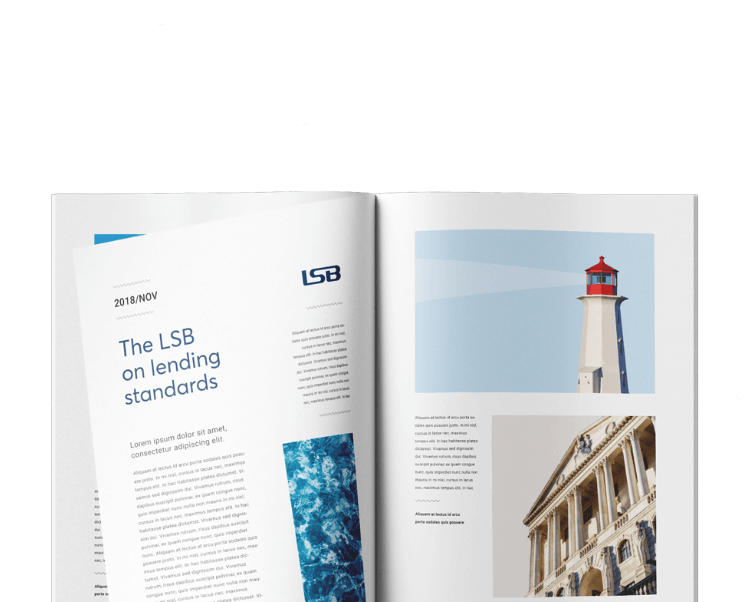Voltaire, who was not known for his piety, said that, if God did not exist, we would have to invent him. In other words, he had an unsentimental, instrumental view of the deity.
After seven weeks as interim CEO at the Lending Standards Board, I have the same conviction that LSB performs a critical role – which is, perhaps, not always well-understood – and that both the industry and consumers would want to re-invent something like LSB if we did not already exist. By consumers, I count, of course, both personal and business customers of banking services.
Fortunately, no re-invention is necessary, but maybe some re-statement of why LSB matters is.
What I have observed is the importance of the Standards of Lending Practice and the industry Codes[1] for which LSB is responsible to fair outcomes for consumers and, as a result, to confidence in the industry. Underpinning these outcomes – fairness and confidence – is LSB’s independent and rigorous approach to oversight. It is that oversight which provides the assurance that standards are being observed.
It is also LSB’s oversight which highlights good practice and points up areas for improvement.
This is not just my view. Shortly after my arrival as interim CEO, we received the findings of independent research we commissioned into the views of firms committed to our Standards and Codes. We want to understand what our key stakeholders want from us; this research aimed to provide insights into exactly that.
The research, which we shall share shortly, confirmed that the firms questioned see LSB primarily as a quasi-regulator and value robust oversight. Firms are also positive about the way LSB goes about providing that oversight and particularly value LSB’s willingness to engage in an open way as a critical friend.
So, you can expect LSB to maintain its rigour, but also to provide constructive feedback on what we find.
I’m also struck by the importance of publicising our findings more widely.
What we observe when we undertake compliance work is not only of interest to the firms we have reviewed, but also to the wider financial services industry.
To give a topical example, the report we published almost exactly a year ago on the implementation of the Vulnerability Taskforce principles which should guide services to customers in vulnerable circumstances[2] provides hugely valuable insights into how firms might approach the issues raised by FCA’s draft Guidance on vulnerability, published his July.
We shall, therefore, aim to get into a regular rhythm of undertaking reviews, publishing reports highlighting our findings and running follow-up workshops or seminars to enable firms to explore good practice.
That begins this Autumn. Over the next six months, we shall undertake two major reviews and publish follow-up reports and further guidance to assist firms in meeting their responsibilities under the Access to Banking Standard.
Our top priority is to bed in the Contingent Reimbursement Model (CRM) Code for Authorised Push Payment Scams. As part of that bedding in, we shall be undertaking a major review of the consistency with which firms signed up to the Code are applying the no blame provision when deciding whether to reimburse customers.
We have strong support for this review from the newly established Advisory Group chaired by Ruth Evans.
On the business lending side, following the extension in the turnover threshold of the Standards of Lending Practice for business customers to £25m, and the strengthening of requirements around debt sale, we shall undertake a review of firms’ approach to due diligence on debt sale to understand how the Standards have been embedded within firms processes and procedures.
And we have followed up last year’s summary report on firms’ adherence to the Access to Banking Standard with further reviews of branch closure programmes as they continue across the industry. Our second summary report is due to be published this autumn. We will also publish good practice we have identified as part of our assurance work early next year. So rigour must be allied to transparency. That is partly because transparency is the best way of demonstrating rigour. But it is also because transparency – sharing good practice – is the best way of bringing about the improved outcomes for consumers and businesses which is LSB’s purpose.
It’s also, incidentally, the purpose of this and future blogs!
Mark Neale
[1] The four information remedies flowing from the FCA’s Credit Card Market Study; Access to Banking Standard (which relate to branch closure programmes); and Contingent Reimbursement Model Code for Authorised Push Payment Scams.
[2] The principles were recommended by the Vulnerability Task Force, chaired by Joanna Elson. The review itself was commissioned by UK Finance and by the UK Finance Consumer Advisory Group. The Report can be found on the LSB’s website









